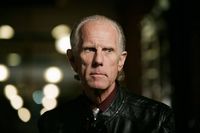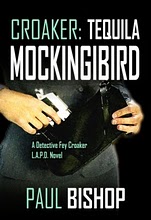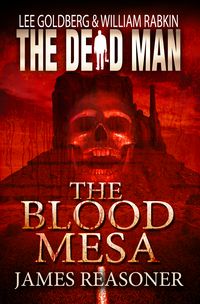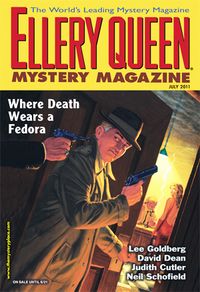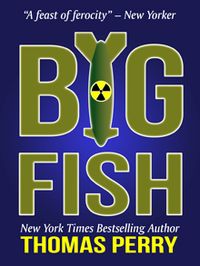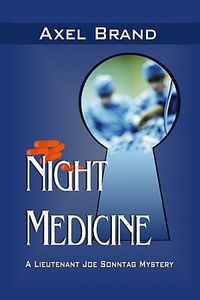 With the publishing industry undergoing cataclysmic changes, and with self-publishing now a viable option for authors, it's only natural that literary agents are scrambling to position themselves.
With the publishing industry undergoing cataclysmic changes, and with self-publishing now a viable option for authors, it's only natural that literary agents are scrambling to position themselves.
How are they going to make money in this new publishing business? How are they going to be relevant?
One way is to reinvent themselves. Instead of just finding clients publishers and negotiating the deals, they are now branching out into publishing books themselves… or helping their clients self-publish by taking on the management and business side of the business (finding cover artists, copyeditors, tracking royalties, etc) …in exchange for a 15% commission on books sold. Here's how the Dystel & Goderich Literary Agency is doing it:
We have a project manager whose job it is to coordinate, advise, and make sure that the process goes smoothly with minimal work on the part of the author. This, because we want our authors to write, not have to engage in a 47-e-mail exchange with someone about font size. Everything is subject to the author’s approval.
Which brings up the question posed by several of you, both here and on Joe Konrath’s blog: what are you people doing to earn that 15% commission? Pretty much what we do now to earn that 15% commission. Our commitment to this is more than just uploading and watching the dollars trickle in. In addition to all we do as agents, managing self-published properties will be part of our job: updating metadata, copy, next-book excerpts, etc. It’s not just vague managerial duties, but concrete tasks that we will be adding to our other duties.
Over on the Writer Beware blog, there's an informative, thoughtful, and remarkably civil discussion going on about this new development, one that Victoria Strauss sees as a troubling conflict of interest. Here's just one of her many concerns:
If an agency can publish a client's book itself, will it try as hard to market the book to traditional publishers? Will it give up sooner on a book that doesn't sell right away? Where and how will the line be drawn between "this book still has potential markets" and "this book is tapped out?" How much–unconsciously or otherwise–will the agency influence clients' decisions on which publishing route to take? According to Dystel & Goderich's announcement, "what we are going to do is to facilitate e-publishing for those of our clients who decide that they want to go this route, after consultation and strategizing about whether they should try traditional publishing first or perhaps simply set aside the current book and move on to the next." (My bolding.) Does this mean that the agency may take on clients whose manuscripts are never marketed to other publishers at all?
But in the comments section, author Barry Eisler, who is married to an agent, and Joe Konrath, whose agents just announced their new self-publishing intiative, have jumpd in to explain in detail why they see this as a natural evolution for agents as advocates for their authors. Barry says, in part: 
I think you're defining the author/agent relationship premise too narrowly. Most fundamentally, the purpose — the end — of the agent is to help authors get their books to the greatest number of readers and achieve the greatest possible commercial and literary success. The means by which this end has traditionally been achieved is a sale to a legacy publisher. Because the "sale to a publisher" route has until quite recently been the only means to the "getting the book to the greatest number of readers and achieve the greatest possible commercial and literary success" end, it's easy to conflate the two. But just as railroads were not in the railroad business, but rather were in the transportation business, agents are not in the "selling to publishers" business, but rather are in the "helping their authors reach the greatest number of readers and achieve the greatest possible commercial and literary success" business. Agents who miss this fundamental distinction are making the same mistake the railroad companies made, and will achieve similar results.
It's discussion well worth reading.
I'm sure you're wondering where I weigh in on this.
I agree with both Victoria… and with Barry & Joe.
I think it's a big conflict-of-interest when an agency becomes a publisher…creating a situation that's rife with ethical problems and plenty of opportunities for the authors to be exploited and screwed.
However, I think that's very different from what agencies like Dystel & Goderich appear to be offering.
If I am reading it right, they're offering to take all the headaches out of your self-publishing venture by dealing with the cover artists, copyeditors, formatters, and sales platforms for you.
In other words, you write, we'll handle as much of the business side of it as you'd like us to. You'll still be making all the decisions and writing all the checks…we'll just shoulder all the time-consuming, day-to-day managerial work.
I don't see a conflict-of-interest in that scenario. It's your self-publishing venture, they're just managing it for you in exchange for a commission (I think 15% for that service is way too high, but that's another discussion).
(Pictured: Victoria Strauss and Barry Eisler, who photo was taken at Bouchercon 2010 by Mark Coggins)
